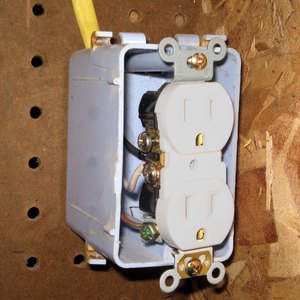
Ideally, utility meters for renters should measure only their own utility consumption. But some rental complexes or multi-family dwellings operate on shared utility meters that measure usage for multiple apartments. Shared utility meters pose a serious financial risk for tenants as they could make utility bills run higher, and dishonest landlords might fail to reimburse renters for the portion of the bill that isn't theirs. Some states have adopted shared meter laws to combat this issue.
New York
New York has the most highly publicized and stringent shared meter laws on the books. Under New York law, shared meters are illegal under any circumstances and all shared meter conditions must be reconfigured. Tenants who are on a shared meter, or who suspect their meter is shared, should contact their utility company to investigate the situation. If the company finds a shared meter is in operation, they will issue a plan to remedy the situation, and the landlord will have 120 days to comply.
However, if the shared meter condition cannot be eliminated because of a legal impediment or extraordinary cost, or if the amount of shared service is minimal as defined by the Public Service Commission (PSC), the landlord and tenant may reach a mutually acceptable written agreement instead.
Minnesota
Minnesota is another state with specific laws against shared meter conditions. For example, the landlord is required to pay the utility bill for the shared meter, and the tenants must pay the landlord for their individual portions. The landlord must divide the bill fairly between apartments, and the tenant's share may be added to the rent or paid separately. If the tenant is paying separately, the landlord must state the total cost of utilities for the apartment in writing, and, on request, must provide copies of the utility bill for the building and a copy of each divided utility bill to ensure that every tenant is paying their fair share and no one is being overcharged. If the landlord does not follow these rules, the tenant does not have to pay the bill or reimburse the landlord in any way.
Other States
Other states generally lack specific laws against shared meters. In these states, shared meter conditions may be handled by the utility company or by local councils and ordinances. In general, rental regulations state that tenants are only required to pay for utility service to their individual apartments. Tenants paying more than their share of the bill should contact their local council or utility company to investigate the situation.
Writer Bio
Michelle Labbe has been writing online and for print since 2004. Her work has appeared in the online journals Reflection's Edge and Cabinet des Fées as well as in Harvard Book Store's anthology, "Michrochondria." She is pursuing a Master of Arts in publishing and writing at Emerson College.

